Is Vinegar Actually Good at Cleaning Grease?
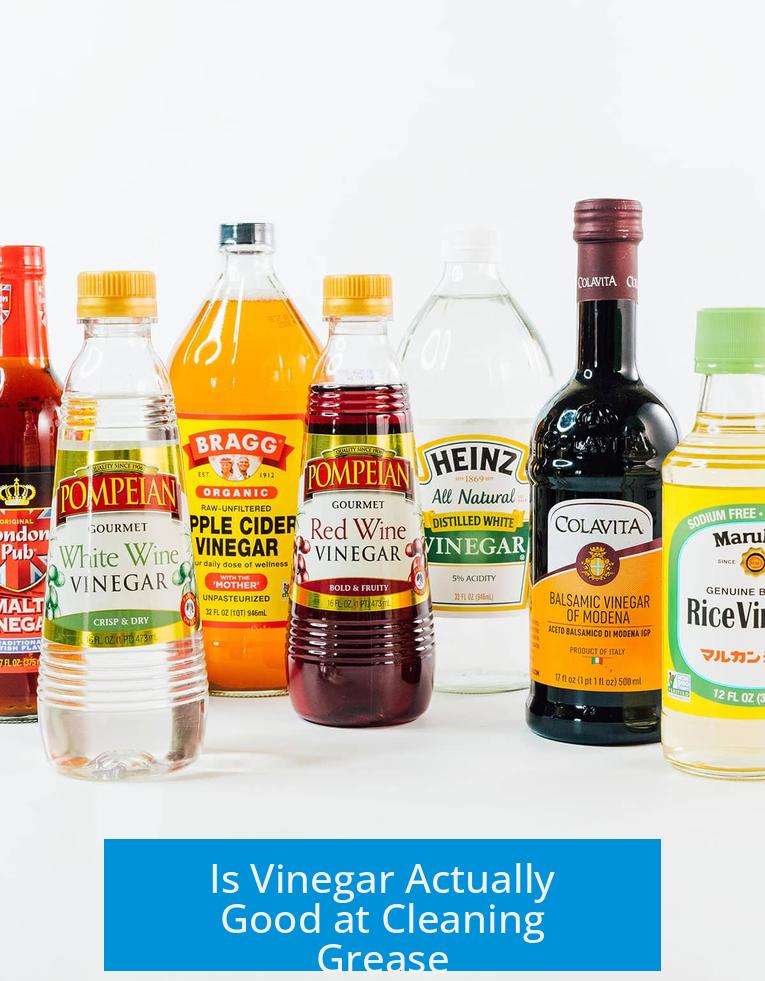
Vinegar can be effective at cleaning grease to an extent, mainly due to its acetic acid content that penetrates and lifts grease from surfaces, but it is generally milder and slower compared to commercial or caustic cleaners. It excels at polishing residue-free surfaces but may struggle with heavy, burnt-on grease or carbon deposits typical in ovens and microwaves.
Understanding Grease in Kitchen Appliances
The grease found in ovens and microwaves is not simply oil but a complex mixture. It consists mostly of food oils, including triglycerides, combined with burnt carbon deposits. This blend is thicker and more stubborn than usual cooking oils, partly because the heat alters the grease chemically, turning it into a tougher, resinous layer.
This complexity means that cleaning such grease requires more than just a simple solvent. Burnt carbon deposits adhere strongly to surfaces, and the mixture’s heterogeneity poses a challenge for mild cleaning agents.
How Vinegar Works on Grease
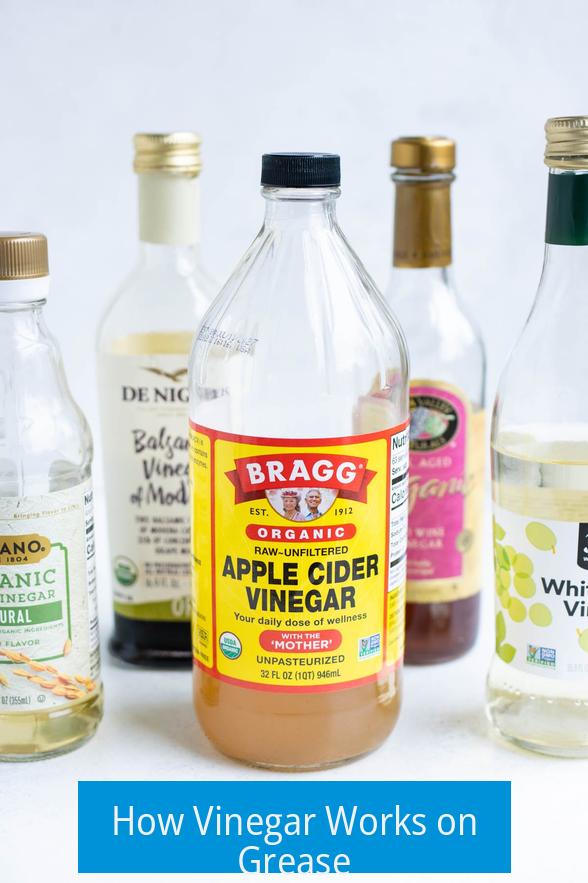
The primary active ingredient in vinegar is acetic acid. It is a weak acid, present mostly in a neutral or non-ionic molecular form. This unique characteristic allows it to penetrate grease layers effectively.
- Penetration and swelling: Vinegar’s nearly hydrophobic nature helps it seep under the grease layer. It swells the grease from the substrate, loosening its grip. This contrasts with caustic cleaners that dissolve grease top-down.
- Lowering pH: By reducing the surface’s pH, vinegar protonates fatty acids and triglycerides. Protonation converts these molecules from ionic to neutral forms, weakening the grease structure and aiding its breakdown.
- Mechanical removal: Because vinegar lifts the grease away from surfaces rather than dissolving it directly, users can often scrape off softened chunks, reducing liquid mess and avoiding corrosive damage.
Therefore, vinegar’s cleaning mode is gentler and more about lifting and loosening grease rather than chemically destroying it immediately.
Comparison With Commercial Cleaning Agents
Typical commercial oven cleaners combine caustic soda (sodium hydroxide) with organic amine compounds. This blend allows both chemical dissolution from the top and deep penetration to lift grease from surfaces.
| Cleaner Type | Mechanism | Speed & Strength | Surface Impact |
|---|---|---|---|
| Vinegar (acetic acid) | Penetrates grease, swells and loosens; lowers pH | Mild, slower acting | Gentle, non-corrosive, residue-free |
| Commercial Oven Cleaner | Caustic dissolution + penetration | Fast, strong | Corrosive, requires safety precautions |
Vinegar suits light cleaning and routine grease removal. It usually takes longer and may require mechanical scrubbing but avoids harsh chemicals that can damage surfaces or irritate users. For thick or burnt-on grease, commercial products outperform vinegar in effectiveness and efficiency.
Vinegar’s Additional Advantages
- Residue-free polishing: Vinegar does not leave oily or chemical residues behind. This makes it excellent for glass, mirrors, countertops, and stainless steel handrails.
- Fingerprint removal: Application with a microfiber cloth removes fingerprints and smudges cleanly.
- Non-toxic and environmentally friendly: Vinegar is less harmful to people, pets, and the environment compared to synthetic cleaners.
Limitations and Optimal Use Cases
While vinegar is good at removing grease, it is less effective at heavy or old burnt-on deposits. Many stubborn stains in microwaves and stovetops result more from burnt food particles than purely from grease. Acids and water help loosen this ‘crud’, making it easier to wipe away grease afterward.
Sodium hydroxide and washing soda remain the most potent agents for greasy stains, especially on fabric. For laundry stains, combining washing soda, a bit of club soda, and dish soap works better than vinegar alone.
Mixtures involving vinegar, water, and Dawn dish soap show improved cleaning performance on kitchen surfaces. More concentrated mixtures with baking soda can pre-treat stained clothing before washing. However, vinegar should never be combined with caustic substances like lye (sodium hydroxide) to avoid dangerous reactions.
Safe Chemical Practices
Mixing vinegar with alkaline or strong chemical cleaners is unsafe and discouraged. Specifically, vinegar should not be combined with lye or bleach, as these mixtures produce harmful gases or corrosive compounds.
Stick to combinations of vinegar with mild soaps and baking soda for safe, effective cleaning. Avoid experimenting with hazardous chemical blends.
Summary
- Grease in ovens and microwaves is a mix of triglycerides and burnt carbon deposits, making it tough to clean.
- Vinegar uses acetic acid to penetrate and swell grease layers, lifting them from surfaces gently.
- It acts slower and milder than commercial caustic cleaners but avoids corrosive effects.
- Vinegar shines at residue-free polishing of glass and stainless steel.
- Strong alkalis like sodium hydroxide outperform vinegar on heavy grease and stains.
- Combining vinegar with water and dish soap improves kitchen surface cleaning.
- Never mix vinegar with lye or bleach for safety reasons.
Can vinegar effectively break down oven grease?
Vinegar’s acetic acid penetrates grease and swells it from underneath. This lifting action helps peel grease off surfaces rather than dissolving it completely like harsh cleaners.
How does vinegar compare to commercial oven cleaners?
Commercial cleaners use strong caustics plus penetrating agents to both lift and dissolve grease quickly. Vinegar is milder and slower but less harsh on surfaces.
Is vinegar good for removing burnt food particles?
Burnt food is mostly carbonized residue, not grease. Vinegar and water help loosen burnt crud, making it easier to wipe away grease trapped underneath.
Can vinegar be used with other cleaning agents?
Mixing vinegar with water and dish soap improves grease removal. Adding baking soda can help with stains but avoid mixing vinegar with lye or harsh chemicals.
Does vinegar leave any residue after cleaning?
White vinegar does not leave residue. It works well for polishing glass and surfaces, removing fingerprints without streaks.


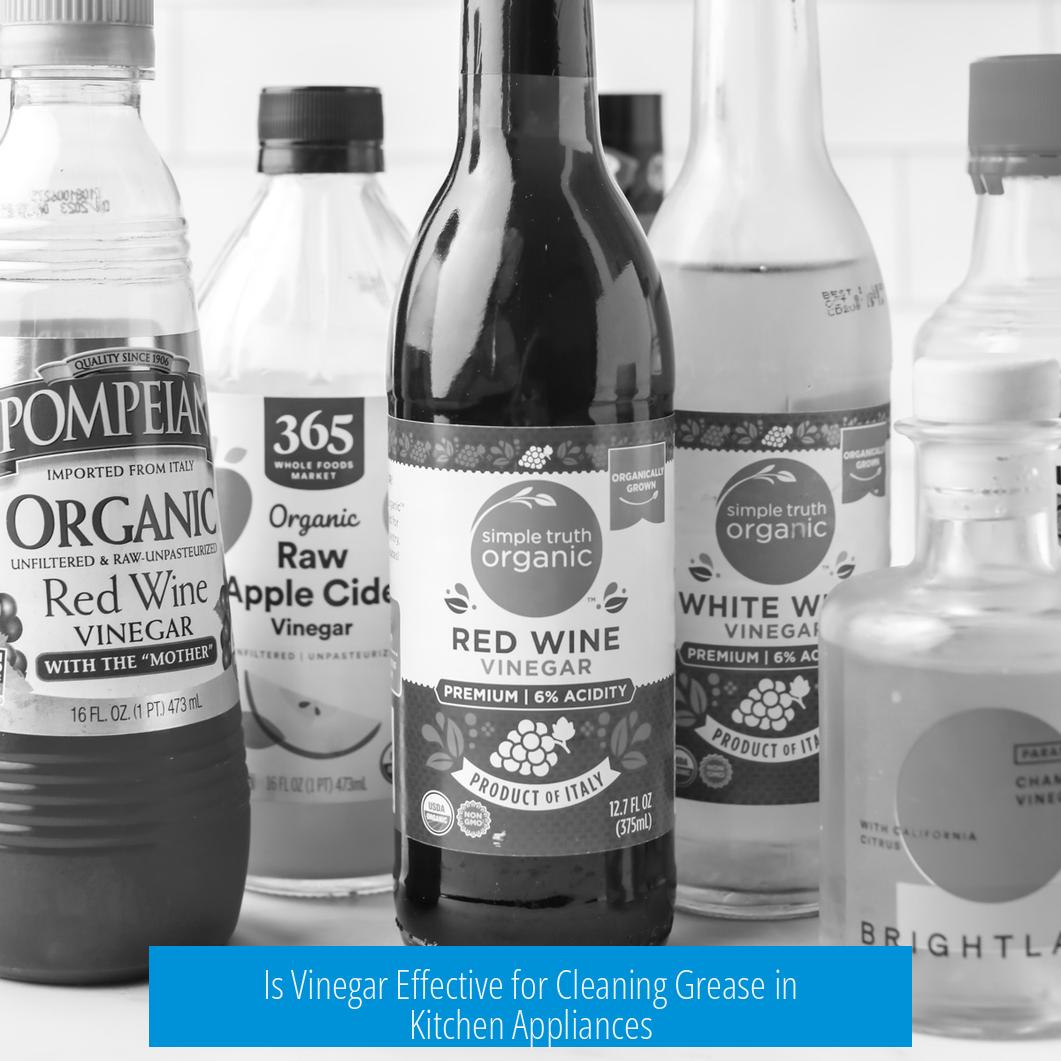
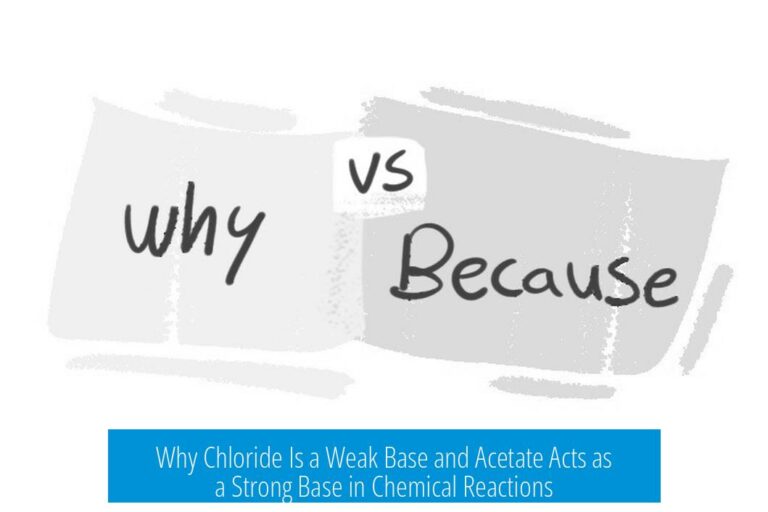
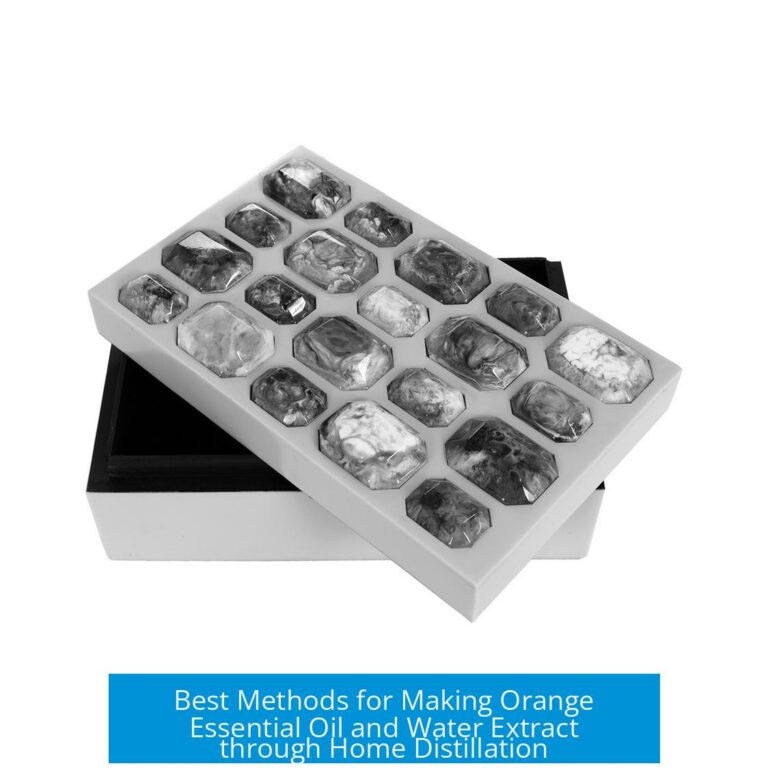
Leave a Comment